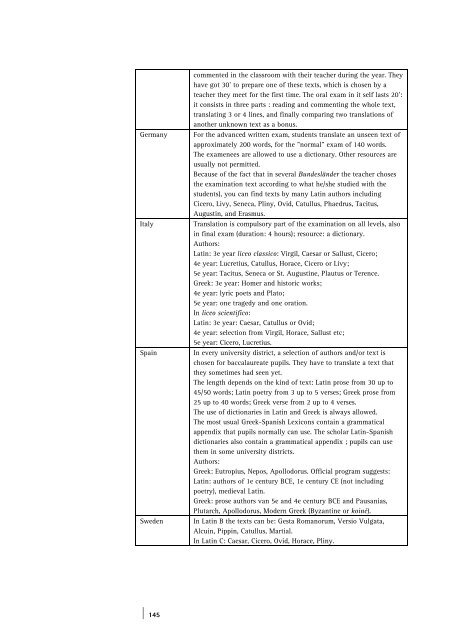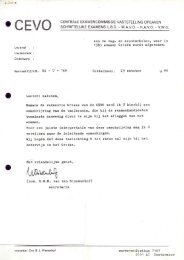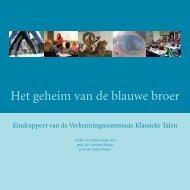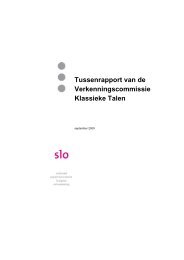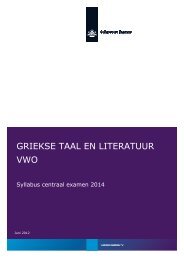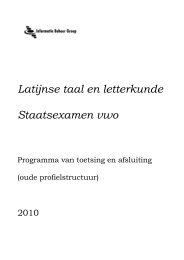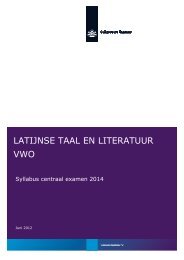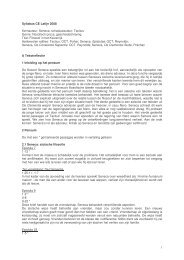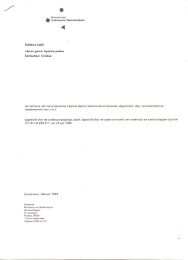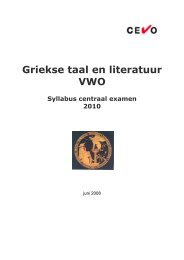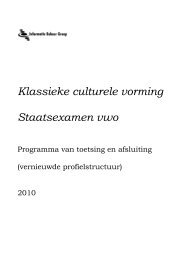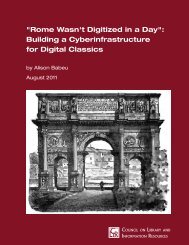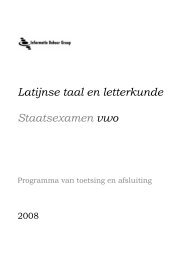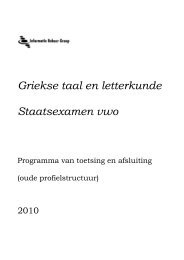You also want an ePaper? Increase the reach of your titles
YUMPU automatically turns print PDFs into web optimized ePapers that Google loves.
Germany<br />
Italy<br />
Spain<br />
Sweden<br />
commented in the classroom with their teacher during the year. They<br />
have got 30’ to prepare one of these texts, which is chosen by a<br />
teacher they meet for the first time. The oral exam in it self lasts 20’:<br />
it consists in three parts : reading and commenting the whole text,<br />
translating 3 or 4 lines, and finally comparing two translations of<br />
another unknown text as a bonus.<br />
For the advanced written exam, students translate an unseen text of<br />
approximately 200 words, for the "normal" exam of 140 words.<br />
The examenees are allowed to use a dictionary. Other resources are<br />
usually not permitted.<br />
Because of the fact that in several Bundesländer the teacher choses<br />
the examination text according to what he/she studied with the<br />
students), you can find texts by many Latin authors including<br />
Cicero, Livy, Seneca, Pliny, Ovid, Catullus, Phaedrus, Tacitus,<br />
Augustin, and Erasmus.<br />
Translation is compulsory part of the examination on all levels, also<br />
in final exam (duration: 4 hours); resource: a dictionary.<br />
Authors:<br />
Latin: 3e year liceo classico: Virgil, Caesar or Sallust, Cicero;<br />
4e year: Lucretius, Catullus, Horace, Cicero or Livy;<br />
5e year: Tacitus, Seneca or St. Augustine, Plautus or Terence.<br />
Greek: 3e year: Homer and historic works;<br />
4e year: lyric poets and Plato;<br />
5e year: one tragedy and one oration.<br />
In liceo scientifico:<br />
Latin: 3e year: Caesar, Catullus or Ovid;<br />
4e year: selection from Virgil, Horace, Sallust etc;<br />
5e year: Cicero, Lucretius.<br />
In every university district, a selection of authors and/or text is<br />
chosen for baccalaureate pupils. They have to translate a text that<br />
they sometimes had seen yet.<br />
The length depends on the kind of text: Latin prose from 30 up to<br />
45/50 words; Latin poetry from 3 up to 5 verses; Greek prose from<br />
25 up to 40 words; Greek verse from 2 up to 4 verses.<br />
The use of dictionaries in Latin and Greek is always allowed.<br />
The most usual Greek-Spanish Lexicons contain a grammatical<br />
appendix that pupils normally can use. The scholar Latin-Spanish<br />
dictionaries also contain a grammatical appendix ; pupils can use<br />
them in some university districts.<br />
Authors:<br />
Greek: Eutropius, Nepos, Apollodorus. Official program suggests:<br />
Latin: authors of 1e century BCE, 1e century CE (not including<br />
poetry), medieval Latin.<br />
Greek: prose authors van 5e and 4e century BCE and Pausanias,<br />
Plutarch, Apollodorus, Modern Greek (Byzantine or koinè).<br />
In Latin B the texts can be: Gesta Romanorum, Versio Vulgata,<br />
Alcuin, Pippin, Catullus, Martial.<br />
In Latin C: Caesar, Cicero, Ovid, Horace, Pliny.<br />
⏐ 145


